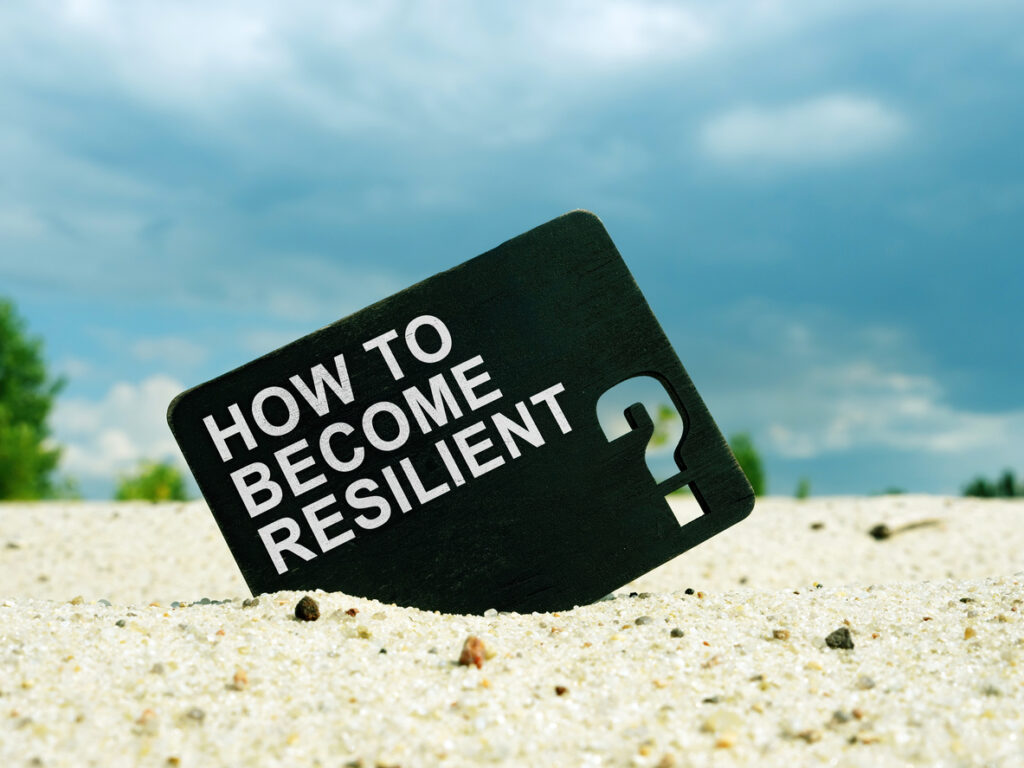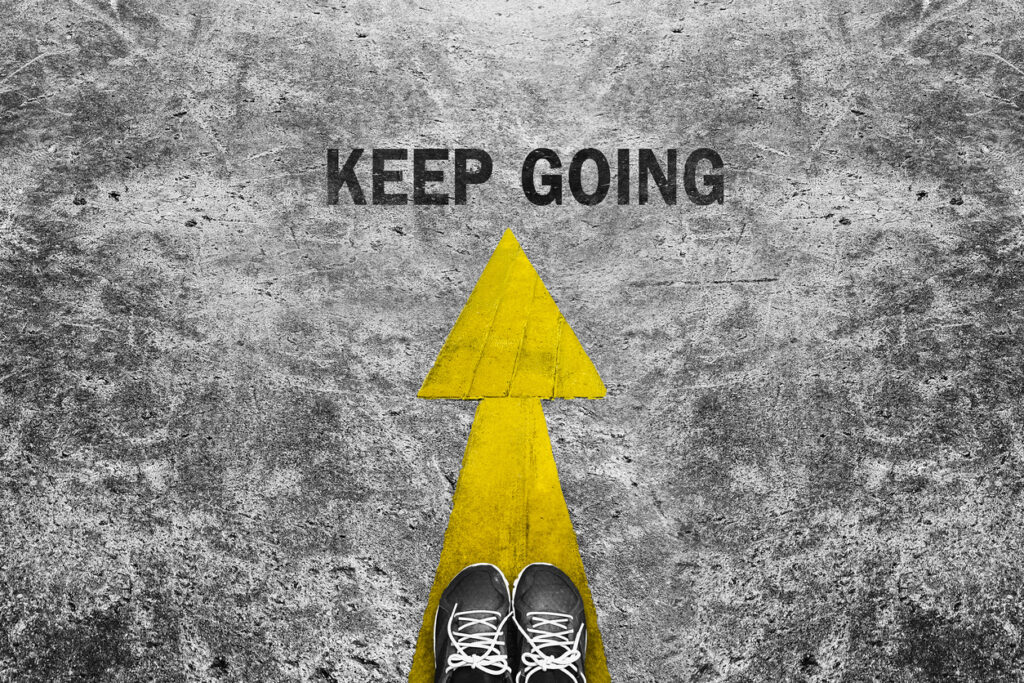In our rapidly evolving world filled with adversity and challenges, understanding and fostering psychological resilience has become paramount. This enriched guide delves deep into the essence of resilience, drawing from authoritative sources like the American Psychological Association and recent research studies.
Table of contents
Short Summary
Psychological resilience is the ability to maintain or regain mental well-being in difficult situations.
A variety of genetic, psychological and social factors influence an individual’s resilience when faced with adversity.
Mental health professionals can play a vital role in helping individuals develop resilience by providing tailored evidence based interventions and therapy.
Understanding Psychological Resilience

Being mentally strong means not just standing up again but also moving on. It’s like using hard times as lessons. Considering our background and even our genes, this strength helps us face problems and improve.
A study published in Harvard Business Review highlighted that resilience is not about enduring and pushing through challenges but about how you recharge and bounce back.
The main best practices are:
Making healthy lifestyle choices
Building connections with friends and neighbors
Practicing deep breathing
Taking time for rest and recovery
Engaging in enjoyable activities
In this context, it is essential to recognize the vital role of resilience in promoting mental health, enabling individuals to confront stress and adversity, and fostering overall well-being.
Definition of Psychological Resilience
Resilience is how well you handle tough times and bounce back from them. It’s about staying mentally strong when faced with challenges, like severe stress or trauma.
The American Psychological Association says resilience is about positively adapting during hard times. It’s key to keeping a healthy mind and having good results in life.
Put simply, resilience is about dealing with challenges, adapting, and bouncing back. Having close bonds, especially for children, offers comfort and strengthens this ability.
Factors Influencing Resilience
While genetics play a role, environmental factors, personal experiences, and even our social connections greatly influence resilience.
The World Health Organization has recognized the importance of social determinants in mental health, emphasizing the role of resilience in navigating life’s challenges. A multitude of factors can influence resilience, including:
Genetics
Personality traits
Social support
Coping skills
For starters, people with strong personalities often are stable, outgoing, responsible, open, and friendly. They feel good about themselves, show self-control, and adapt easily.
Moreover, being positive, confident, smart, and managing emotions well helps tackle challenges.
Additionally, support from friends and family is crucial. Factors like age, gender, and background play a role in how we handle difficulties.
Lastly, building strength differs for everyone, depending on challenges and environment. Recognizing these factors can help increase strength and happiness.
Mental Health and Resilience
In today’s growing mental health challenges, it’s crucial to focus on building resilience. According to the World Psychiatry Association, people with resilience generally have better mental well-being.
Plus, they often experience less depression and anxiety. So, understanding the value of resilience highlights its role in helping us handle life’s ups and downs.
Resilience in Mental Health Conditions
Even with mental health issues, people can still be resilient. This means they can handle their symptoms and work towards feeling better. For instance, studies show that being resilient helps people deal with feelings like sadness or worry. Building resilience is important for feeling good in everyday life.
With the right help, experts can guide people through tough times and help them grow stronger.
Promoting Mental Health through Resilience
Building strength in the mind boosts how we handle tough times and stress. It’s like training for challenges.
First, having a growth mindset helps. It means seeing hard times as chances to learn, not just big problems. This way of thinking makes us tackle challenges and grow.
Next, having good coping skills is key. This includes handling emotions and managing stress.
By improving these skills, we deal with problems better, making us stronger and happier overall.
Building Resilience: Strategies and Techniques

Developing resilience involves a variety of approaches, such as:
Seeking assistance
Defining objectives
Reflecting on encounters
Recognizing and utilizing capabilities
Constructing coping mechanisms
Sustaining an optimistic attitude
By using these simple steps, people can become stronger and better handle tough times, improving their emotional health.
Now, let’s explore these steps further. We’ll look at how to grow a positive mindset, improve ways to cope, and build strong friendships and support.
Growth Mindset

Think of a growth mindset as seeing challenges as chances to grow, not as big roadblocks.
With this mindset, people can face problems, use feedback, and keep pushing to get better.
A big part of this is positive self-talk, which means telling yourself good things.
By focusing on the good and pushing out the bad thoughts, people can bounce back faster and feel better overall.
Coping Skills
Simply put, coping skills help people handle stress and tough feelings. For instance, they might use problem-solving or manage their emotions. By getting better at these skills, people can face hard times more easily.
Plus, everyone can find coping skills that fit their own needs. Some examples are:
Deep breathing
Exercise
Journaling
Conversing with a friend
Practicing mindfulness
These activities can help alleviate stress and anxiety, promoting resilience and overall well-being.
Social Support
Having support from friends, family, and the community is key to staying strong.
Good support helps people handle tough times, gives emotional comfort, and creates a feeling of belonging.
Also, it helps improve problem-solving skills, boosts confidence, and brings hope.
By keeping close ties with others, we can better face life’s ups and downs.”
Resilience in Different Life Situations

Resilience can be applied in various life situations, enabling individuals to adapt and recover from adversity.
In this section, we will explore the role of resilience in natural disasters, the workplace, and personal relationships, highlighting the importance of resilience across different contexts.
By learning how resilience works in life, we gain insights to improve ours and help others build theirs.
Resilience in Natural Disasters
In times of natural disasters, being resilient helps people and communities bounce back faster. It’s like having a strength that helps you handle the tough emotional and physical effects of these events.
Furthermore, when people are more resilient, they can better prepare for these disasters and reduce damage. By knowing how important resilience is during these times, we can all:
Better prepare for these devastating events
Take proactive measures to minimize the impact of disasters
Recover more effectively and efficiently after the event
Workplace Resilience
Workplace resilience enables employees to adapt to change, manage stress, and maintain productivity even in difficult situations.
By fostering positive adaptation in the workplace, employees can better cope with challenges, maintain a positive attitude, and contribute to a healthier work environment.
Strategies for fostering workplace resilience may include:
Cultivating a growth mindset
Honing coping skills
Constructing social support
Participating in stress inoculation training
By building resilience in the workplace, employees can thrive in challenging environments and contribute to the overall success of their organizations.
Resilience in Personal Relationships
Being strong in personal relationships helps people handle conflicts and stay close. Building this strength means understanding others better and keeping connections healthy.
Simple ways to do this include really listening, saying thank you, and taking care of oneself. With these steps, relationships become a source of happiness and satisfaction in life.
The Role of Mental Health Professionals in Building Resilience

Mental health professionals play a crucial role in helping individuals build resilience through therapy and targeted interventions.
When facing mental challenges or just boosting well-being, a mental health expert offers key support and advice.
In this section, we will examine the specific roles mental health professionals can play in building resilience, such as providing therapy and offering evidence-based interventions tailored to the needs of each client.
Therapy and Resilience
First, therapy, like cognitive behavioral therapy, helps people build strength by changing negative thoughts. This therapy changes behaviors and thoughts carefully, helping people handle life’s ups and downs.
Next, there’s acceptance therapy, which teaches acceptance and strength without bad habits. So, by joining therapy, people can grow stronger and feel better overall.
Mental Health Professionals’ Guide to Building Resilience
Mental health professionals can guide clients in building resilience by:
Providing resources, support, and evidence-based interventions
Furnishing direction and assistance to individuals in forming resilience
Supplying therapy and other interventions to aid individuals in developing resilience
The mental health professionals’ guide to building resilience involves:
Developing a sense of self-efficacy and self-esteem
Cultivating optimism
Fostering personal control and independence
Practicing self-care
Seeking guidance from mental health professionals when necessary
By following this guide, individuals can develop resilience and better manage the challenges they face in their daily lives, ultimately helping them to overcome challenges.
Cultural and Contextual Factors in Resilience
Cultural and contextual factors play a significant role in shaping resilience, with different cultures and environments influencing how individuals cope with adversity.
By examining the impact of these factors on resilience, we can gain valuable insights into how resilience is shaped and maintained across diverse populations, as well as the role of biological and cultural evolution in this process.
In this section, we will explore the role of cultural differences in resilience, as well as the various contextual factors that can affect an individual’s ability to develop and maintain resilience.
Cultural Differences in Resilience
Cultural differences in resilience may stem from varying beliefs, values, and coping strategies across cultures. For instance, the resilience of an individual is impacted by their social, political, interpersonal, and familial contexts.
Resilience is shaped by culturally distinct and varied objectives and can be affected by belief systems such as Confucianism, Buddhism, and Taoism in Chinese culture.
Researchers of indigenous health have shown that various factors such as:
culture
history
community values
geographical settings
Can contribute to the resilience in indigenous communities. This demonstrates the importance of taking different elements into account when looking at the resilience of a community.
By understanding the role of cultural differences in resilience, we can better tailor interventions and support to enhance resilience across diverse populations.
Contextual Factors Affecting Resilience
Socioeconomic status, resource access, and community support influence an individual’s resilience development and maintenance.
For instance, support from loved ones boosts resilience, while job resources and education also help.
Other contextual factors that can affect an individual’s ability to cope with and rebound from adversity include:
Age
Gender
Experience
Spirituality
Considering these factors, professionals can adapt interventions to enhance individual resilience, regardless of unique situations.
Summary
In our ever-evolving world, we encounter numerous challenges that test our resilience and adaptability. Nevertheless, by maintaining our inner strength, we not only confront these challenges head-on but also discover opportunities for personal growth.
As we forge ahead, it’s essential to recognize that seeking assistance when necessary is a sign of wisdom and strength, fostering collaboration and collective progress. Together, we can overcome adversity, embrace change, and build a brighter future for ourselves and generations to come.
FAQs
What it means to be resilience?
Being resilient means having the strength to endure hardships and the capacity to recover from difficulties. It is an essential ability to cope with challenges in life and work through emotional pain.
How does a person show resilience?
Resilience is the ability to cope with and adapt to challenging situations.
Resilient individuals acknowledge stress, setbacks, and emotions, harness strengths, seek aid, and progress through challenges with acceptance.
They don’t dwell on failures but acknowledge them, learn from them, and continue progressing.
What are the 7 keys to resilience?
Optimism, self-discipline, positive relationships, health, purpose, hope, and support form the seven keys to resilience.
By tapping into these elements, we can build greater personal resilience and foster a more resilient society.
What is psychological resilience?
Psychological resilience is the ability to adapt and cope with difficult life experiences in a positive and successful manner.
It’s a learnable skill, vital for managing stress, trauma, and challenges, progressively enhancing an individual’s resilience and adaptability.
How can I build resilience?
Developing a growth mindset, enhancing coping skills and fostering strong social support networks are key to building resilience.
These strategies can help individuals better manage stress, cope with difficult situations and develop a more positive outlook on life.
Need Further Guidance?
Understanding resilience can be tough. But if you need help or advice, just reach out to our Assistance HUB. Our team is ready to support you with advice that fits your situation. Always remember, you’re not on this journey alone; we’re with you at every turn.

